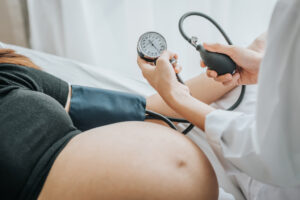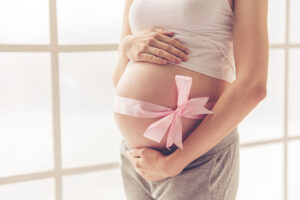20% of pregnant women suffer with pelvic girdle pain.
It commonly affects women in the third trimester but can start earlier, especially if it is not your first pregnancy.
PGP causes pain either at the front of the pelvis (symphysis pubis) or at the sacroiliac joint at the back of the pelvis.
Common symptoms:
- Pain when walking for long periods of time
- Pain walking up stairs
- Pain getting out of the car or bed
- Pain turning over in bed
How can I prevent pain?
- Keeping active but stop if you feel pain
- Rest in the evenings
- Don’t sit for more than 30 minutes in the same position
- Sit to get dressed and undressed
- Put equal weight on each leg when you stand
- trying to keep your legs together when getting in and out of the car or bed
- Use a pillow under your bump and between your legs for extra support in bed.
- Avoid heavy lifting
- Avoid carrying a toddler or baby on one hip
What treatments are available?
- Physiotherapy
- Support belt
- Crutches for severe cases
- Pain relief such as paracetamol
What else do I need to know?
Most women with PGP will have a vaginal delivery. A caesarean section is not recommended. An epidural can help with pain relief in labour. For most women PGP improves after delivery but ongoing physiotherapy may be needed. PGP tends to recur in future pregnancies.
For more information check out the Rotunda Hospital website.






